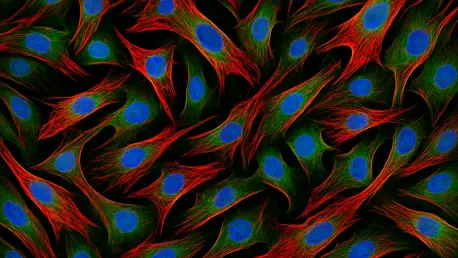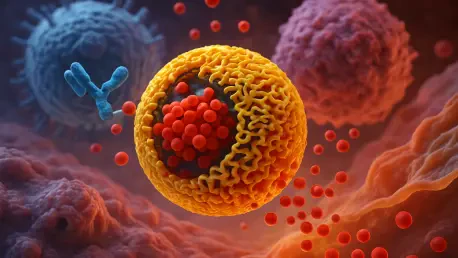
Within the intricate ecosystem of a tumor, cancer cells are far from acting alone; they are surrounded by a complex network of supporting cells that form the tumor microenvironment. Among these collaborators, cancer-associated fibroblasts (CAFs) have emerged as particularly influential players.

Biopharma expert Ivan Kairatov joins us today to discuss a paradigm shift in evaluating cutaneous chronic graft-versus-host disease (cGVHD), a severe complication of stem cell transplantation. Drawing from his work with an international NIH task force, he explains why current assessment standards

Sophisticated nanodelivery systems that respond to multiple biological cues are rapidly redefining the landscape of targeted therapeutics, offering a highly precise method for overcoming the formidable barriers presented by diseases like metastatic cancer. This review explores the evolution of

A faint tinge of pink swirling in the toilet bowl is an unmistakable alarm bell for most, signaling an urgent need for medical attention, but for millions, this critical warning sign of a potentially treatable cancer remains completely invisible. New research reveals a shocking reality: individuals

Today, we have the privilege of speaking with Dr. Ivan Kairatov, a leading biopharma expert whose research has illuminated the intricate connections between lipid genetics and liver health. We'll be exploring the often-overlooked condition of Familial Hypobetalipoproteinemia, or FHBL, and how this

In the face of a life-altering diagnosis, the search for hope can lead patients and their families down countless digital rabbit holes, where unscrupulous vendors lie in wait with promises of miraculous cures sold through slick websites and persuasive social media campaigns. The U.S. Food and Drug